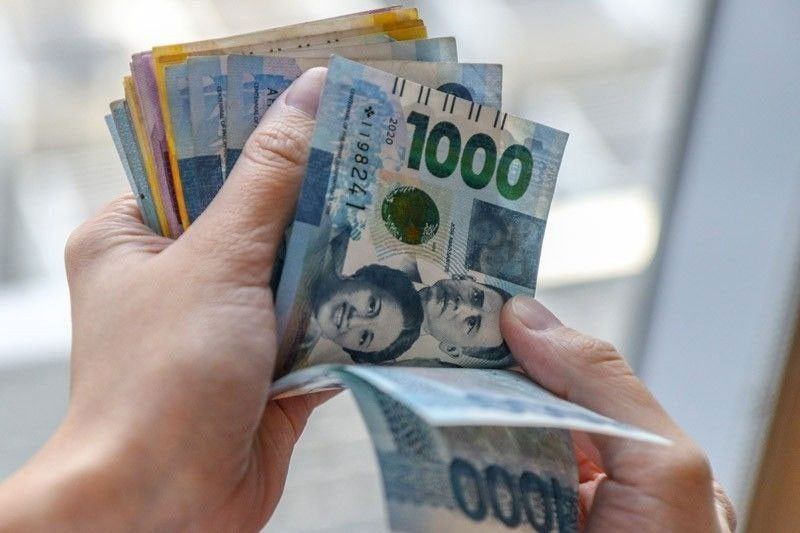Philippines urged to hasten exit from ‘dirty money’ list

MANILA, Philippines — Paris-based Financial Action Task Force (FATF) has urged the Philippines to speed up initiatives to address the remaining deficiencies to counter money laundering as well as terrorist and proliferation financing.
FATF president T. Raja Kumar of Singapore said the Philippines has been retained in the gray list or jurisdictions under increased monitoring after missing the January 2023 deadline to resolve remaining outstanding issues.
Kumar said in a hybrid press conference to culminate the three-day FATF Plenary held in France that the Philippines has yet to address 11 out of 18 action items since it was reincluded in the gray list in June 2021.
“So these are, you know, clear areas of deficiency and I urge the Philippine government to press the accelerator and continue to put in the necessary resources, the high level political commitment to essentially complete these remaining action items,” Kumar said in reply to a question by The STAR.
According to the FATF, The Philippines should continue to work on implementing its action plan to address its strategic deficiencies by demonstrating that effective risk-based supervision of DNFBPs is occurring; demonstrating that supervisors are using anti-money laundering/combating the financing of terrorism (AML/CFT) controls to mitigate risks associated with casino junkets; as well as enhancing and streamlining law enforcement agencies access to beneficial ownership information and taking steps to ensure that the information is accurate and up-to-date.
Furthermore, the global dirty money watchdog saidthat the Philippines should also continue demonstrating an increase in the use of financial intelligence and an increase in money laundering investigations and prosecutions in line with risk; demonstrating an increase in the identification, investigation and prosecution of terrorism financing cases; and enhancing the effectiveness of the targeted financial sanctions framework for both TF and PF by demonstrating that designated non-financial businesses and professions (DNFBPs) understand their obligations.
“What I would urge the Philippines and the Philippine government specifically to do is to take action to commit and complete these action plans,” Kumar said.
According to Kumar, areas that need focus for the Philippines include ensuring that regulation and supervision of high risk sectors that this is actually working as well as implementing AML/CFT controls to mitigate the risks relinked to casino junkets.
He also cited the need to increase money laundering and terrorist financing investigations and prosecutions in line with its risks and context.
After the Philippines made a high-level political commitment in June 2021 to work with the FATF and Asia Pacific Group on Money Laundering (APG) to strengthen the effectiveness of its AML/CFT regime, the Paris-based watchdog said the deadlines given to the Philippines have now expired despite the country’s continued progress across its action plan.
The Philippines joins 22 other countries in the gray list, while both Cambodia and Morocco were no longer subject to increased monitoring by the FATF.
Countries in the black list or jurisdictions subject to call for action include North Korea, Iran, and Myanmar.
Meanwhile, Kumar also announced the suspension of Russia’s membership in the FATF for its “illegal, unprovoked and unjustified full-scale military invasion of Ukraine.”
In 2020, the FATF placed the Philippines in the list or non-cooperative countries and territories or the blacklist for having no legal anti-money laundering framework.
The passage of Republic Act 9160 or the Anti-Money Laundering Act of 2001 (AMLA) as well as its amendments through RA 9194 paved the way for the removal of the Philippines from the black list in 2003. Since then the Philippines was in and out of the gray list or jurisdictions under increased monitoring.
Last month, Bangko Sentral ng Pilipinas and Anti-Money Laundering Council chairman Felipe Medalla admitted that the Philippines indeed missed the January deadline to address strategic deficiencies in the country’s AML/CFT framework.
According to Medalla, the Philippines need to show that it could enforce measures to counter money laundering and terrorist financing.
“(They’re) saying ‘well, you’re in a gray list but you have a year to prove yourself. January 2024, what happens between now and then is much critical. What we’re saying now is the problem is enforcement,” Medalla said.
- Latest
- Trending


























